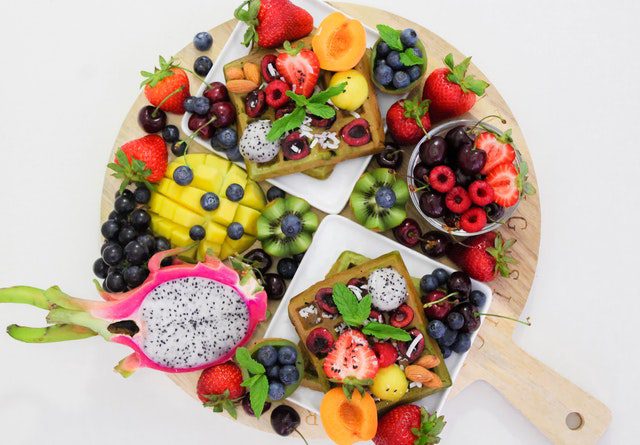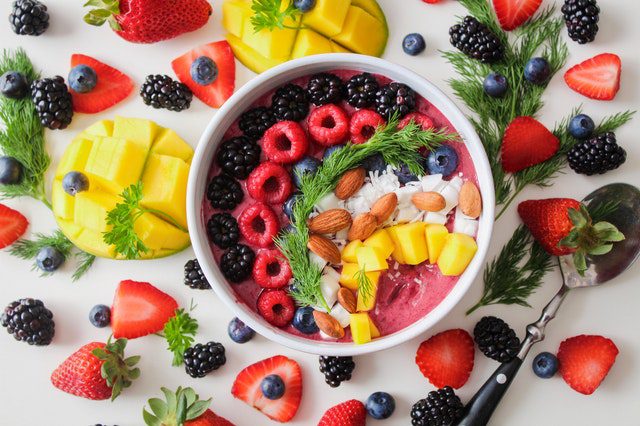As more research is emerging, which emphasizes the importance of health in our gut, the spotlight is falling on one thing that helps the most with gut flora: Probiotics and its lesser-known partner, Prebiotics.
Many of us know that it’s good to take a probiotic after illness and when we have taken a course of antibiotics. We know that it helps to keep our gut healthy.
It’s only recently though that we’re finding that healthy gut flora can give benefits beyond the digestive system. It can impact many other areas of our wellbeing.
What exactly are Prebiotics and probiotics?
Prebiotics and probiotics may sound similar, but they have very different roles in the body.
Probiotics: These are live bacteria and yeasts that exist in certain types of foods and which are good for your gut. Our body is full of different types of bacteria, and these ‘friendly’ bacteria can help to keep your digestive system healthy.
Prebiotics: these are foods that we cannot digest, typically fiber. They sit in the gut and act as food for probiotics, which allows them to multiply. In this way, they’re used to boost the number of ‘good bacteria’ in your gut, which can help with digestion and other health benefits.
Can you take Prebiotics and probiotics together?
Taking Prebiotics and probiotics together is beneficial as the Prebiotics can enhance the benefits of the probiotics. That said, Prebiotics are not necessary, and probiotics will work without them; they act more to boost the effectiveness of the probiotics.
What are the Benefits of Probiotics?

Probiotics help to maintain the natural balance of bacteria in your gut. They can help with digestive health, but they are also increasingly linked to more far-reaching health benefits. They can help with:
Mental Health: some studies have found a link between probiotics and an improvement in mental health conditions such as depression, anxiety, and stress.
Heart Health: certain strains of probiotics may reduce bad cholesterol and blood pressure.
Boosts the Immune System: some studies have seen that the number of respiratory infections and the recovery period after respiratory infections were likely to be reduced when taking probiotics.
Weight management and helping to deal with obesity. Some studies have found that probiotics may prevent the fat from being absorbed into the gut, removing it as feces instead. It may also leave you feeling fuller for longer, which can lead to healthier eating habits.
May Reduce the Risk of Eczema and Some Allergies. Studies linking probiotics with reduced incidences of eczema in babies and allergies in children are still ongoing. However, there is one completed study that found that mothers taking a probiotic during pregnancy had babies with a ‘significantly reduced’ risk of developing eczema in the first 2 years of life.
Digestive Health: this includes preventing and treating diarrhea but also helping with IBD (Irritable Bowel Disease) and IBS (Irritable Bowel Syndrome).
It’s now understood that having a healthy balance of bacteria in the gut goes beyond digestive health. It can have an effect on many different systems in our body.
It seems that ‘a probiotic a day’ may help with our overall wellness.
What are the Benefits of Prebiotics?

Prebiotics are fibers which sit in the gut and help feed the probiotics. They help increase the cultures of ‘friendly bacteria’ growing in the gut.
In this way, Prebiotics may amplify the beneficial effects of probiotics. They may also help with the absorption of certain vitamins into the body.
Best Probiotic Foods
With all this in mind, how can we introduce more probiotic foods into our diets?
Here are 8 everyday foods that are high in natural probiotics:
Natural Yogurt: yogurt is teeming with good bacteria and is the number one source of probiotics. Some physicians recommend eating a pot of natural or Greek yogurt every day.
Sauerkraut: as this has been fermented, it’s teeming with good bacteria and lactic acids. For that reason, it’s considered a source of immune-boosting probiotics.
Apple cider vinegar: some wellness experts recommend having a spoonful of apple cider vinegar on your salad or at a meal. It’s said to help with cholesterol and even blood pressure and diabetes. It’s not recommended to eat more than a spoonful, but in small amounts, it’s a good source of probiotics.
Miso: This is used in Japanese soups. As it’s made by fermenting soybeans and brown rice, together with a fungus, it’s also a great source of probiotics. Other types of fermented soybeans like Tempeh have probiotics too.
Kefir: this is something you would have to buy in, but it’s essentially a fermented milk drink. It looks similar to a milk yogurt and is made out of kefir grains.
Some cheeses: not all, but some cheeses have an active culture of good bacteria. Check for these ‘active cultures’ on the label when buying them. The cheeses that can have good bacteria that survive include Gouda, mozzarella, cheddar, and cottage cheese.
Traditional buttermilk: note that this is not the same as ‘cultured buttermilk.’ Traditional buttermilk is the liquid left over from churning cream or butter. It’s typically high in probiotic bacteria, so it’s a good source of probiotics.
Pickles: Pickles are cucumbers that are fermented for a long period of time. The ones that are fermented in vinegar do not have probiotic effects. The ones that are left in a saline solution (saltwater) ferment using their own bacteria. The end result is teeming with probiotic bacteria. Pickles are also a good source of vitamin K too.
Another option is to take probiotics as supplements or as part of a yogurt drink. Symprove is one supplement that’s been growing in popularity. As it’s water-based, it claims to deliver more live probiotics to the gut than some other supplements.
Best Prebiotic Foods
Prebiotics are fibers, but not all fiber is prebiotic. They need to be certain types of fiber to be suitable for feeding the friendly bacteria in the gut. Here are 10 examples of prebiotic foods:
- Chicory Root
- Jerusalem Artichoke
- Garlic
- Onions
- Leeks
- Asparagus
- Bananas
- Barley
- Apples
- Whole oats
How Should I Start Probiotics and Prebiotics?
Probiotics have become the buzzword in health and wellness in recent years. As well as helping with the gut and digestive system, a number of studies have found a link between probiotics and healthier immune systems, better weight management, and even improved mental health. Prebiotics may be less well known, but as they help the probiotics, they can also be beneficial. The two can be taken together.
You can add probiotics to your diet by eating foods that naturally contain good bacteria. On the other hand, you may prefer to take a probiotic supplement or yogurt drink instead. Either way, we hope it helps keep your body’s natural balance intact.


